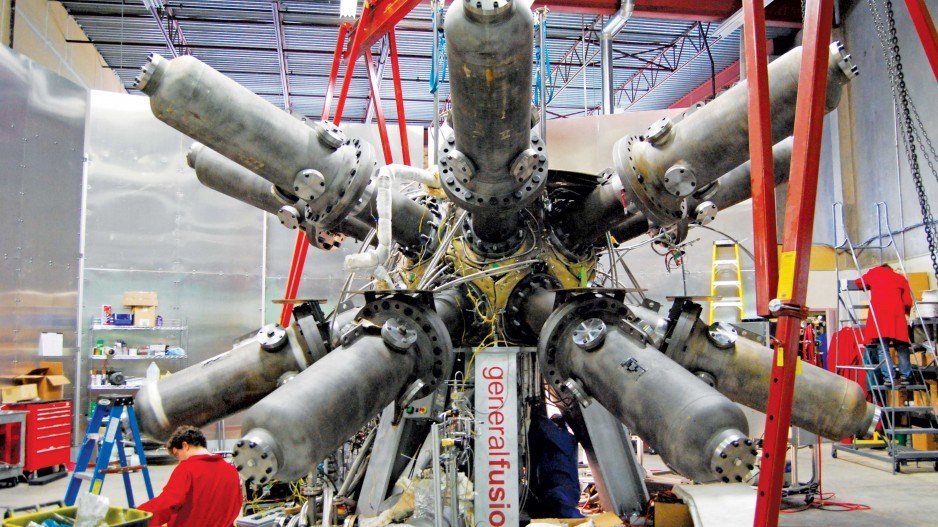Before he decided to run for the federal Liberal Party, Jonathan Wilkinson was the CEO of BioteQ Environmental Technologies Inc. (TSX:BQE), the Vancouver clean tech company that treats mine tailings and recovers valuable residual minerals.
So Wilkinson knows a thing or two about B.C.’s clean tech sector – what’s working, what isn’t and what the new government he will be part of plans to do about giving it a boost.
B.C. is considered Canada’s clean tech hub, thanks to companies like fuel cell pioneer Ballard Power Systems (TSX:BLD) and Chrysalix Energy Venture Capital, the Vancouver-based clean tech venture capital firm behind companies like General Fusion, which is planning to build a $150 million fusion energy demonstration project.
Broadly speaking, the Liberals’ plans for energy is to phase out subsidies to the fossil fuel industry and put more emphasis on the clean tech and renewable energy sectors.
“If you think about where we’re heading, as an economy from a global perspective, we will, over the next 30 or 40 years, be transitioning to a lower carbon economy,” Wilkinson said.
“That means the traditional engines of growth in Canada – oil, gas, coal and those kinds of things – are going, over time, to play a less significant portion of the global energy mix, and that means we need to find other areas that are going to drive growth for the Canadian economy going forward. One of those areas is clearly clean tech.
“That is already growing at 9% a year. Other countries around the world are making significant commitments to and investments in clean tech and Canada has a robust clean tech sector. But we’ve been falling behind over the last several years.”
The Liberal plan is to focus on accelerators and investments in demonstration projects.
It has earmarked an additional $100 a year for direct investments in clean technology, and an additional $200 million per year for traditional industries like forestry and mining to encourage them to adopt clean technology.
One of the most important federal programs for the clean tech space has been Sustainable Development Technology Canada (SDTC). The funding and due diligence it provides helps Canadian clean tech companies leverage venture capital. But SDTC’s funding has been inconsistent and unpredictable over the years. Wilkinson said he thinks SDTC needs to be properly funded.
“We need to actually make a longer term commitment to SDTC,” he said. “We also need to find a way to make SDTC a little less bureaucratic. It is very difficult for smaller companies to go through the SDTC process because it is such an enormous amount of work to do that.”
One of the challenges for clean tech companies is the long development timelines and the engineering costs, which can be substantial. Venture capitalists want to see quicker returns, so the clean tech space has generally suffered from a dearth of venture capital investment.
“We need to look at ways in which we can actually encourage the private sector to bring more venture capture to the table,” Wilkinson said.
One way the federal government can help is to use its procurement powers to support homegrown technologies.
B.C. companies like Ballard Power and Endurance Wind Power, which makes wind turbines, have virtually no sales in Canada. Almost all of their customers are in Europe and Asia because there has simply never been a market for their products in their own countries.
“Right now the federal government does very little from a procurement perspective to try to actually encourage Canadian technology,” Wilkinson said.
“If you talk to Canadian companies, what they will tell you is getting a first demonstration or first commercial demonstration in Canada is almost impossible. Canadians are very reluctant to be the first adopters. That’s a role the federal government can actually step into.”
B.C.’s clean tech sector is also likely to benefit from federal climate change policies. The Conservative government resisted putting a price on carbon, either in the form of a carbon tax or cap and trade.
The Liberals pan to set national carbon reduction targets and let provinces decide for themselves how to meet them. It also plans to issue green bonds to help fund small-scale renewable energy projects.
As a clean tech venture capitalist, Chrysalix CEO Wal van Lierop said he’s happy both with the promises and the tone set by Prime Minister designate Justin Trudeau.
“I think we are most happy about the following: In his acceptance speech, Trudeau said conservatives are not enemies – they are neighbours. I think his connecting capabilities can be a terrific force to bring clean tech and the old oil and gas industry together.
“The oil and gas industry needs to become more sustainable, and they need the clean tech community in British Columbia. The clean tech community in British Columbia needs the oil and gas industry to scale up their technologies, make them ready for export, and if we do both, we get a double-whammy. We get a better, more sustainable resource based industry and we get a much stronger clean tech industry.”




